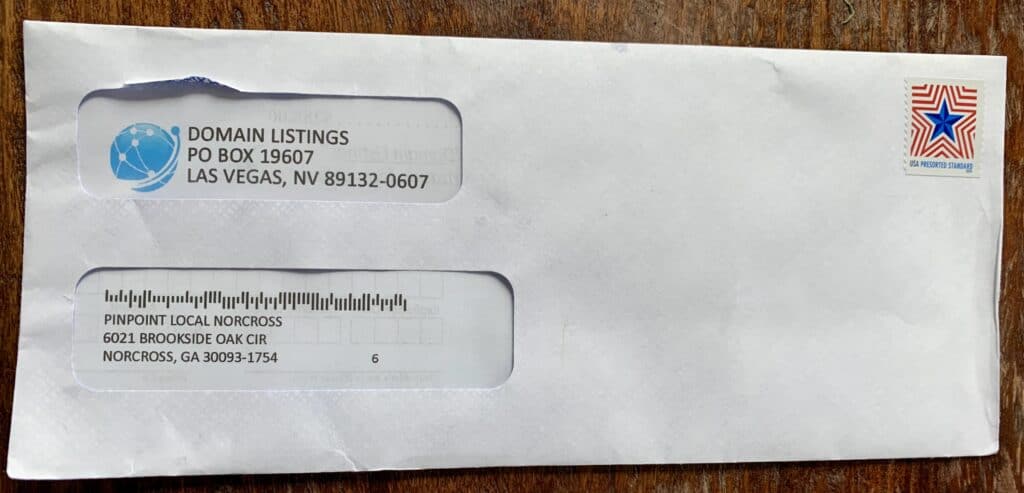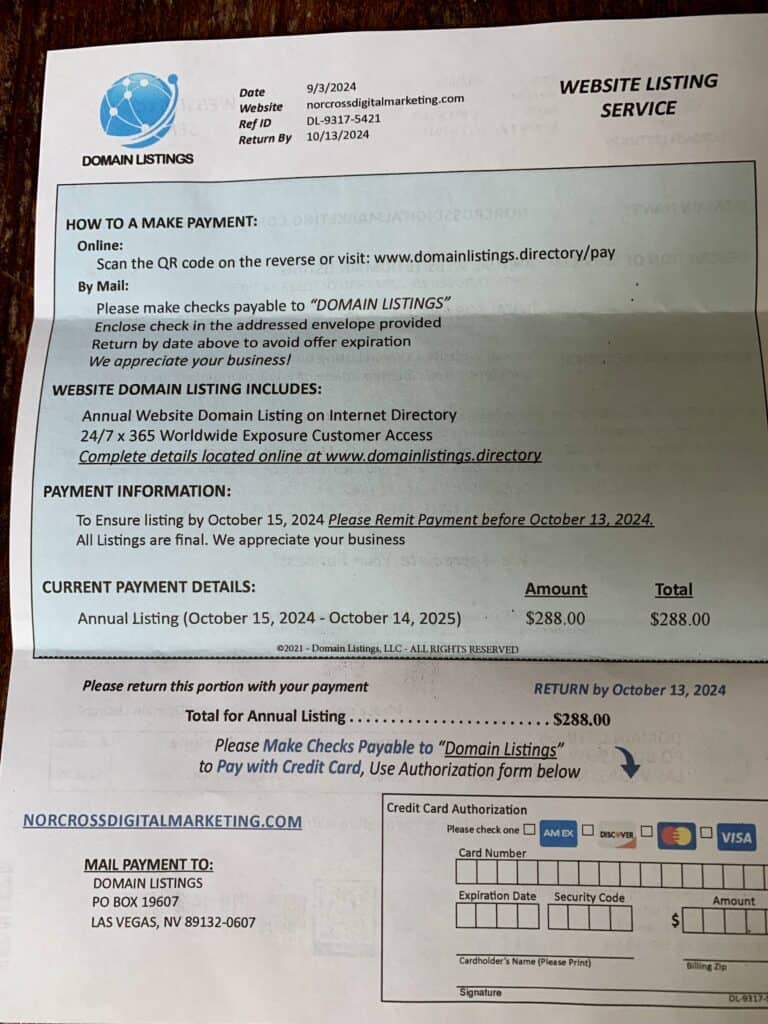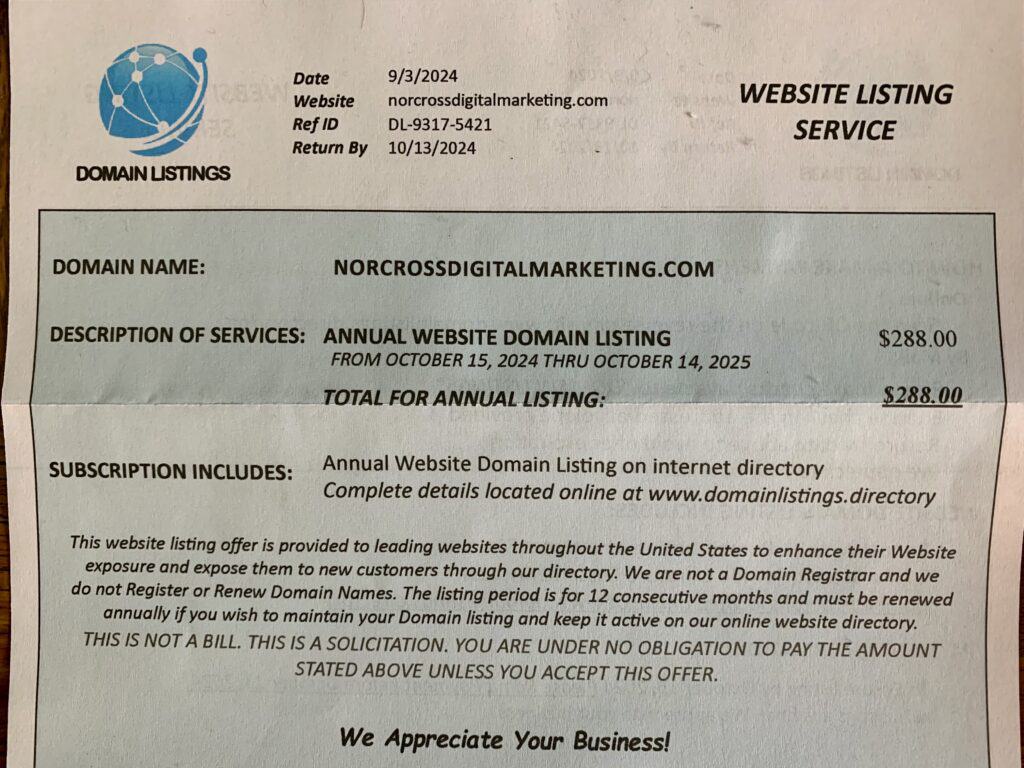
As a digital marketing agency, we’ve seen our fair share of online scams targeting businesses. One particularly deceptive tactic that’s been making the rounds lately is the domain listing scam. If you’ve received an official-looking invoice in the mail for your website’s domain, you might be the target of this scheme. It cost one of our law firm clients lost $250 because he didn’t ask me about this prior to sending a check to the scammers. He was a new client that didn’t understand how domain registrars work.
I received one of these again this week (see images here). I have received two more of these over the last 4 years. Here’s what you need to know to protect your business.
What is a Domain Listing Scam?
Domain listing scams typically involve receiving a letter that looks like an invoice for your domain name renewal. However, these are not legitimate bills – they’re cleverly disguised solicitations for unnecessary services.
Companies like “Domain Listings” or “Domain Networks” send these letters, often requesting $200-$300 for an “annual website domain listing”. While these companies are real, their services are not what they seem.

Red Flags to Watch For
- Unusually high prices (legitimate domain renewals typically cost $10-$20 per year)
- Requests for payment by check or mailed credit card information
- P.O. Box addresses instead of physical locations
- Fine print stating “This is not a bill. This is a solicitation.”
- See the example above asking for $288
Why These Scams Are Dangerous
These domain listing scams prey on busy business owners who might not scrutinize every piece of mail they receive. The “services” offered provide little to no value – they simply list your domain in an obscure online directory that won’t drive traffic or improve your SEO. Read more.
How to Protect Your Business
- Read all mail carefully, especially anything resembling an invoice
- Verify any unexpected bills with your actual domain registrar or web hosting company
- Be wary of unsolicited offers for web services
- Educate your staff about these scams, especially those who handle accounts payable
- Work with a professional marketing agency such as Pinpoint Local Norcross and contact us whenever you are suspicious of any solicitation.

What to Do If You Receive a Suspicious Invoice
- DON’T PAY IT
- Contact your actual domain registrar to verify your registration status. Common domain registrars are GoDaddy, Bluehost, and NameCheap. Your domain may be registered elsewhere. There are many legitimate domain registrars. Contact us if you don’t remember.
Optional:
- Research the company online (include terms like “scam” or “complaints” in your search)
- Report the scam to the FTC and your state’s Attorney General
We are here to help local, small businesses navigate the online world
At Pinpoint Local Norcross, we’re committed to helping our clients navigate the complex world of online business safely and successfully. If you ever have questions about a domain-related communication you’ve received, don’t hesitate to reach out to us. We’re here to help you protect your digital assets and grow your business securely.
Remember, when it comes to your online presence, vigilance is key. Stay informed, stay skeptical, and always verify before you pay.

